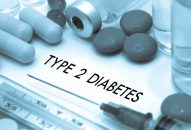Taking care of yourself and adjusting your lifestyle are key factors in preventing complications of diabetes type 2
You have been diagnosed and you have been informed about the possible risk factors that could arise once you develop diabetes. Adjusting the way you eat, your level of activity, your general lifestyle and the way you care for yourself to manage the disease, are all contributing factors that may help prevent complications of diabetes type 2.
As with many other diseases, a comprehensive type 2 diabetes treatment is necessary to be able to manage and control the illness, ensuring that you can still lead a normal life, without the threat of having your glucose levels spiking randomly.
For many new patients, the changes and adjustments required can feel like a difficult situation and they may even be a little hesitant to actually adapt. But, what happens if type 2 diabetes is untreated?
In the simplest of cases, a person with uncontrolled diabetes can suffer a spike of glucose so high that it can lead to hypoglycemia and ketoacidosis.
These two complications of diabetes type 2 easily lead to the appearance of seizures, loss of consciousness and, if still untreated, it can lead to death.
Unfortunately, these are not the only complications that can arise if one does not know or understand what happens if type 2 diabetes is untreated. In many ways, it can be compared to a ticking time bomb that is just waiting to explode.
In addition to hypoglycemia (low blood sugar) and ketoacidosis (buildup of potentially toxic acids), complications of diabetes type 2 can come in a series of events that can cause severe and irreversible damage to several organs of the body.
Moreover, these complications can carry several consequences when one chooses not to follow the proper type 2 diabetes treatment.
For example, in the case of suffering from hypoglycemia, a patient dealing with untreated diabetes can develop the following problems:
- Shakiness and dizziness
- Constant headaches
- Rapid heartbeat
- Blurry vision
- Extreme fatigue
- Seizures
- Coma
In the case of ketoacidosis, once your body’s cells are starved and your system starts breaking down fat as a source of energy, you may experience:
- Dehydration
- Abdominal pain
- Breathing complications
These complications of diabetes type 2 are just a couple of examples of what could happen when a patient refuses to follow up with a personalized type 2 diabetes treatment.
Furthermore, what happens if type 2 diabetes is untreated can extend to affect different organs in very specific ways, causing what – in many cases – is irreparable damage no matter what type of medical response is used.
In these cases, a patient with untreated diabetes may experience:
- Eye problems: because diabetes tends to damage the blood vessels in the eyes, possible conditions that may affect the patient include cataracts, glaucoma, macular edema and diabetic retinopathy. In these cases a patient may require surgery, the implant of a lens or risk permanent loss of vision.
- Neuropathy: uncontrolled diabetes leads to damage on the nerves throughout the body. This causes tingling and/or numbness of extremities, burning sensation, pain and the interruption of automatic processes such as digestion.
- Kidney disease: diabetes has the tendency of affecting the kidneys, which then have issues with their ability to filter waste out of our bodies. In these cases a person may experience diabetic kidney disease which may lead to the need of dialysis.
- Blood vessel damage: this type of damage can cause problems with the circulation, leading to a number of circumstances such as skin and foot problems (very common in diabetics), heart complications, stroke, and even death.
A type 2 diabetes treatment is the best tool to manage the disease and to ensure a better quality of life to patients that have been diagnosed. While the changes may be challenging in the very beginning, they can easily become part of your daily routine and actually help save your life.
Talking to your doctor, getting periodic exams, adjusting your diet and taking proper medication, are the right ways to manage the disease and ensure you don’t have to deal with complications of diabetes type 2.
Sources:
https://www.healthline.com/health/diabetes-complications
https://www.healthline.com/health/diabetes-risk-factors#environmental-factors
https://www.niddk.nih.gov/health-information/diabetes/overview/risk-factors-type-2-diabetes



